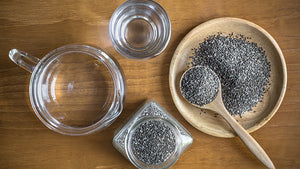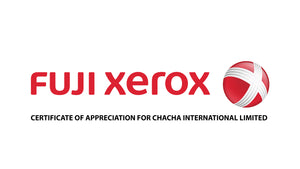Organic, All-Natural, Low-Fat, and other food labels

This awesome guest post was written by Aamar Khwaja, Inventor of modgarden. Aamar is a health advocate and on a mission to see everyone eat healthily!
When you head to the supermarket this week, take a good look at the packaging. Today, most corporations hire lawyers to carefully craft words and sentences that give the illusion of a product being natural, pure, wholesome, or healthy. Because consumers are becoming more and more concerned about eating healthy, companies are using the simple power of language to make health claims and entice customers to buy the product. Many want you to believe that their product is healthier than other options in the grocery aisle. However, buyer beware—many companies use deceptive labeling and legal loopholes in order to conceal the unhealthy nature of their product.
Deciphering Food Labels

Unfortunately, most food labels typically don’t mean much. Terms such as “pure” that are commonly found in fruit juices don’t mean that you are solely drinking juice—rather, the juices can be fixed up with flavor packets for better aroma and taste. So, let’s talk about the different claims that food packaging makes—and what is actually going on!
1. Vitamin and Mineral Claims
If you’re trying to be healthy, you may find yourself buying products that are fortified. This means that the products are marketed as having high vitamin or mineral content and thus are a great option for maintaining your health. Certainly it seems that having additional vitamins and minerals in your foods can’t be terrible—however, the issue is that these extra nutrients appearing in your foods are synthetic vitamins. These synthetic vitamins aren’t particularly beneficial for your health and can actually create system imbalances in your body if consumed over long periods of time. So, even though it might seem like a positive addition, it definitely isn’t worth it. It’s best to eat high-quality foods and whole food based supplements.
2. The All Natural Claim
So, so many processed foods bear the “all-natural” label—unfortunately, it means essentially nothing. This is because there is no standard definition of what the term “all-natural” is, therefore allowing corporate companies to make up their interpretation. In the processed food categories, an “all-natural” product can be genetically modified, grown with pesticides, made with high-fructose corn syrup, and even additives, preservatives, and other artificial ingredients.
The term “all-natural” is regulated with meat and poultry, however. Products that are labeled “all-natural” in this category may not contain artificial flavors, colors, or chemical preservations.
3. The “Made with Whole Grains” Claim
Although many products may proudly claim that they are made with whole grains, take a closer look at the ingredient list. Many of these products still have unbleached wheat flour as the main ingredient and whole wheat flour much farther down the list. Thus, these products contain a relatively small presence of “whole grains.”
Also, remember that many of these products contain a dough conditioner known as potassium bromate. This is common in commercial bakery products, flours, and some whole grain breads. It has been known to cause thyroid dysfunction.
4. The Low-Fat, Low-Sugar Claim
Even though many products are marketed as being low-fat and low-sugar, they typically contain drastically different nutrients than listed on the label. Food products that claim they contain milk, fruits, or vegetables typically don’t contain “real” ingredients. An example of this is blueberry muffins—instead of being made with actual blueberries, some of these products are made with artificial blueberry-flavored pieces. When a product says it contains milk, it might actually contain non-fat powdered milk, palm oil, sugar, and additives instead of actual “milk.”
So, What Does the FDA Actually Do?
In terms of checking labels, it’s important to understand what the FDA does to regulate the food industry. Although the FDA certainly does check food labels, they only verify that the “Nutrition Facts” panel is present on the packaging—but not if it is accurate. This means that labeling such as “0 trans fats” or “all-natural” is ignored regardless of truth. Because of this, it is estimated that one out of every ten food labels are inaccurate.
What’s The Solution?
Because the FDA is mostly no help in providing consumers with the information that they need to make an educated decision about their food, it is important that you take some time to educate yourself before heading to the grocery store.
The easiest way to ensure that you know what you’re eating is to avoid packaged or processed foods, thus avoiding the issue of deceptive labeling. Try to eat as many whole foods as you can. Prepare your meals at home. Join a local CSA (community-supported agriculture) or start your own garden. Changing your mindset is a big part of changing your diet—choose whole foods like fresh, organic produce, organic meat, and organic eggs.
Selecting locally-grown, organic foods can be a bit challenging, but here’s what you need to know—the only organic label out there that means anything is the USDA Certified Organic label. This is the best assurance of organic food quality available right
now. Farmers that have been certified to put this label on their food have to meet very strict standards in order to achieve the certification.
Simply put, if you want to eat healthy, it is very important to be an educated consumer. Take some more time to read some articles about safely grown food. Be a bit wary of claims on products in the grocery store. Try your best to eat organic whole foods whenever possible and cook your own meals. Stay healthy!
A quick note from our founders
Have you been curious about the Ketogenic Diet? You're not alone!
Going "Keto" has helped so many of our friends drop weight and keep it off.
And it's the perfect time to try it because right now you can get a free copy of a brand new cookbook called
This cookbook is jampacked with 148 delicious ketogenic recipes that will help you burn fat like crazy. Even stubborn belly and thigh fat won't stand a chance because your body will have NO CHOICE but to burn that fat for fuel!
If you've struggled to get rid of stubborn fat, you owe it to yourself to test-drive the keto diet and see how effective it really is. It’ll be easy once you have this free cookbook...
HURRY, this FREE offer won’t last long!
https://theheartysoul.com/misleading-organic-food-labels/
- Perfect Earth Foods





